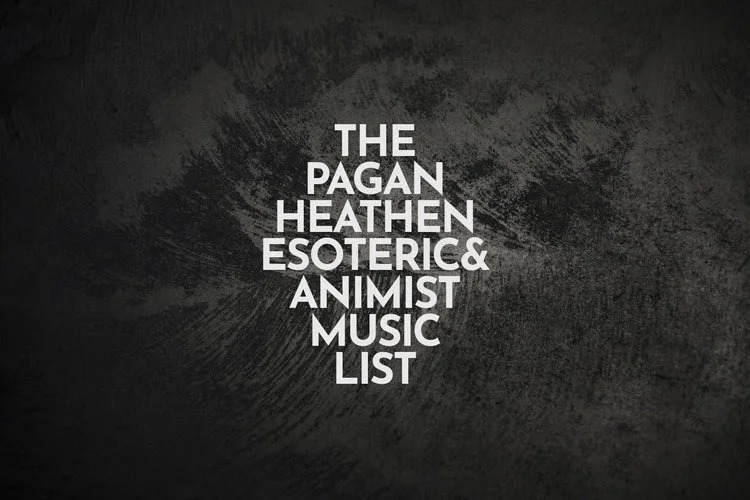Another World, January 2023
Welcome to our many new supporting members! If you have any questions about your supporters’ benefits, please email us at distro@abeautifulresistance.com.
Updated Course Schedule
We’ve needed to re-schedule all three upcoming courses. This is their new start dates.
Five Principles of Green Witchcraft (with Asa West) begins 18 February, 2023
Land: Loss & Reconnection (with Alley Valkyrie) begins 11 March, 2023
Being Pagan (with Rhyd Wildermuth) begins 9 April, 2023
To take of these any of these courses as part of your member benefit, please email us at distro@abeautifulresistance.com
In this month’s Another World
The Re/al/ign, episode 3: With Dougald Hine
In this third episode, Rhyd Wildermuth spoke with Dougald Hine about his upcoming book, called At Work In The Ruins: Finding Our Place in the Time of Science, Climate Change, Pandemics, and All the Other Emergencies. Dougald was a former environmental journalist and activist, probably best known as the co-founder of Dark Mountain along with Paul Kingsnorth.
The Pagan Music List 28
2022 saw quite a few new album releases from great bands. Here are our favorites.
Another adaptation of a chapter of Melinda Reidinger’s upcoming book from us, The White Deer.
In Bacon’s time, a great proliferation of proto-industrial activities—ranging from mining and refining ores, working with metals, constructing wind and water mills, and designing machines to do labor—was taking place all across Europe. The famous formulation “knowledge is power” (scienta potentia est) is correctly attributed to Thomas Hobbes, who had served as a secretary to Bacon when he was a young man, but the idea was incipient in Bacon’s work when he wrote “knowledge itself is power”(ipsa scientia potestas est). This view was inherent throughout this period’s research and manufacturing activities. The practical application of understanding of physical and chemical processes to inventions, mechanics, crafts, medicine and so on facilitated their further development. When nature was understood as a complex machine, it became possible to analyze its constituent parts, which could then be reassembled and set to tasks that would serve humankind.
The same coldly utilitarian logic was also applied to animals. René Descartes claimed that animals do not think or suffer because they lacked souls: essentially, he saw them as machines. Animals were still described mechanistically by philosophers well into the twentieth century: for example, when Martin Heidegger set man into the role of world-former and impoverished the animals by denying them this faculty. Like the medieval Scholastics, Heidegger proposed that (non-human) animals can only interact with what is immediately available to them, and that they suffer from a poverty of attunement to broader contexts. He said: “the stone is worldless; the animal is poor in world, man is world forming.” Pierre Madl argues that those who accept this logic are not constrained to treat the Earth or other creatures with consideration for their welfare. Wielding a theological or philosophical license that allows one to dump chemical, radioactive, or bio-hazardous pollution, or to harvest old-growth forest, or drive animal or plant species to extinction, is part of the “bulldozer mentality of developers.”
The third in the new series on political religion from Rhyd Wildermuth. This time, on demon possession and spirits.
It’s a rarely noticed point that, in Christianity, the doctrine of the trinity was a politically-motivated compromise triggered by competing beliefs about the holy spirit. The context here is again mostly lost to us in the modern age because it’s perhaps even harder for us to conceive of a world full of spirits than a world full of gods.
Spirits were seen as really-existing beings, “breaths” (pneuma) that could inhabit or overtake a human. Such beings could be willingly invited or inadvertantly allowed in, depending on the species. The “unclean” spirits targeted by exorcism were of that latter sort, latching on to humans due to their lack of “purity.” States of impurity could come through failing to purify yourself after certain “unclean” acts (the Greek idea of miasma) or, specifically for the Jews and Christians, living in a state of unatoned sin.
Other spirits, including holy or sacred spirits, could also come upon a human. In fact, these were the spirits most often associated with the gods: thus, an unruly lot running about saying they were inhabited by—or acting in the name of—a holy spirit wasn’t really all that strange a matter. Of course, the specific spiritus sanctum by whose authority they claimed to act was the one imparted on Jesus by an Essene cultist, John the Baptist. That spirit was claimed to be spirit of the Jewish god, the “one-god.”





